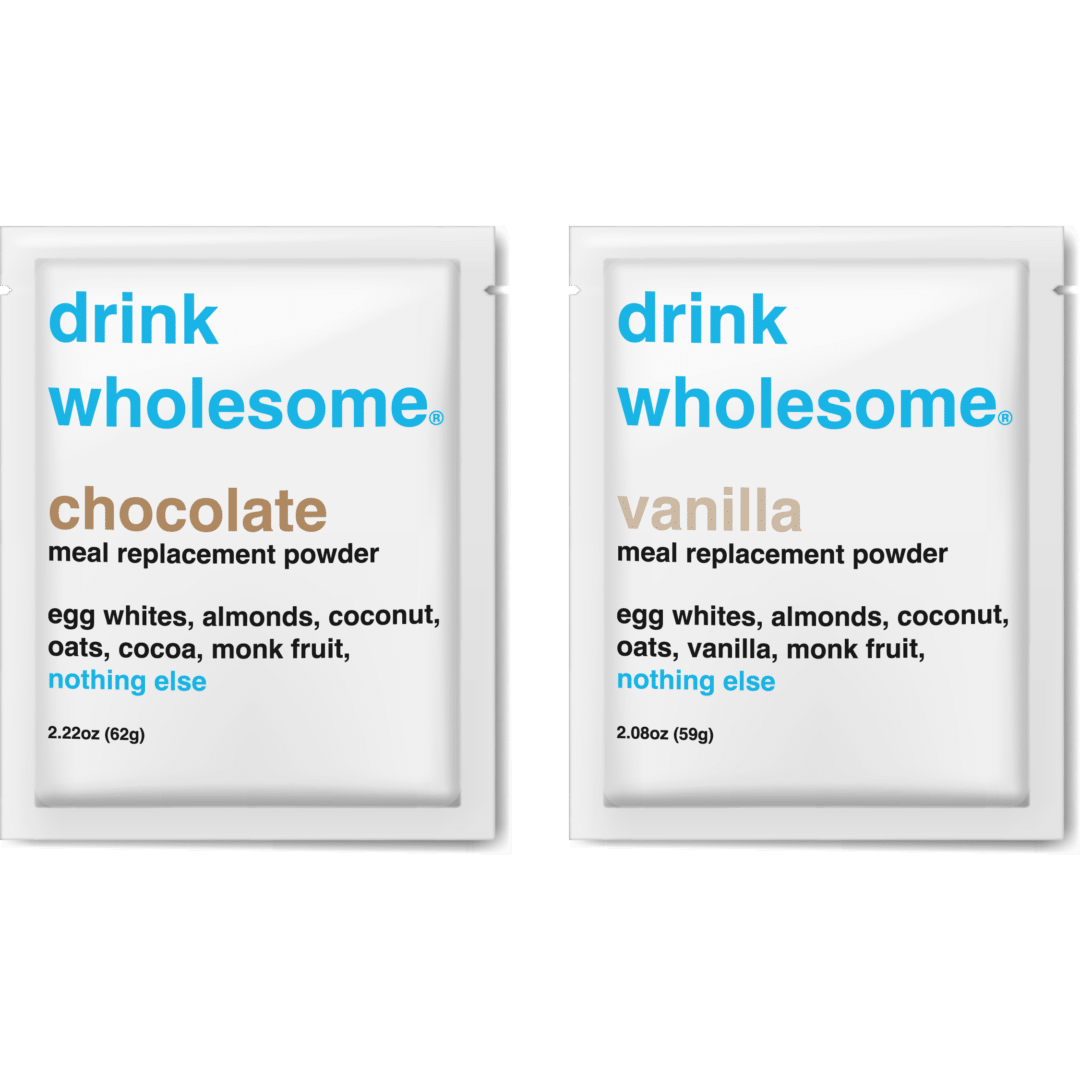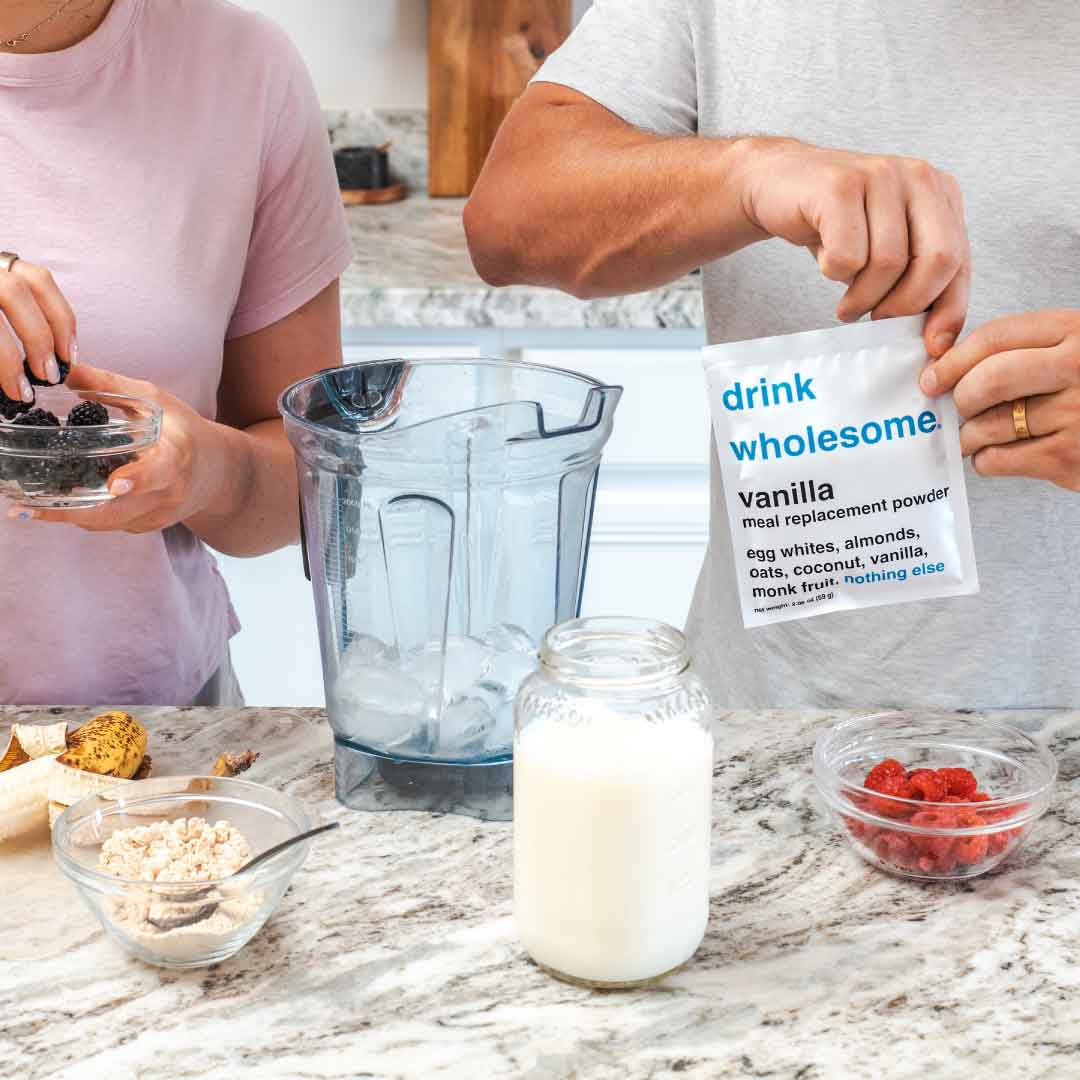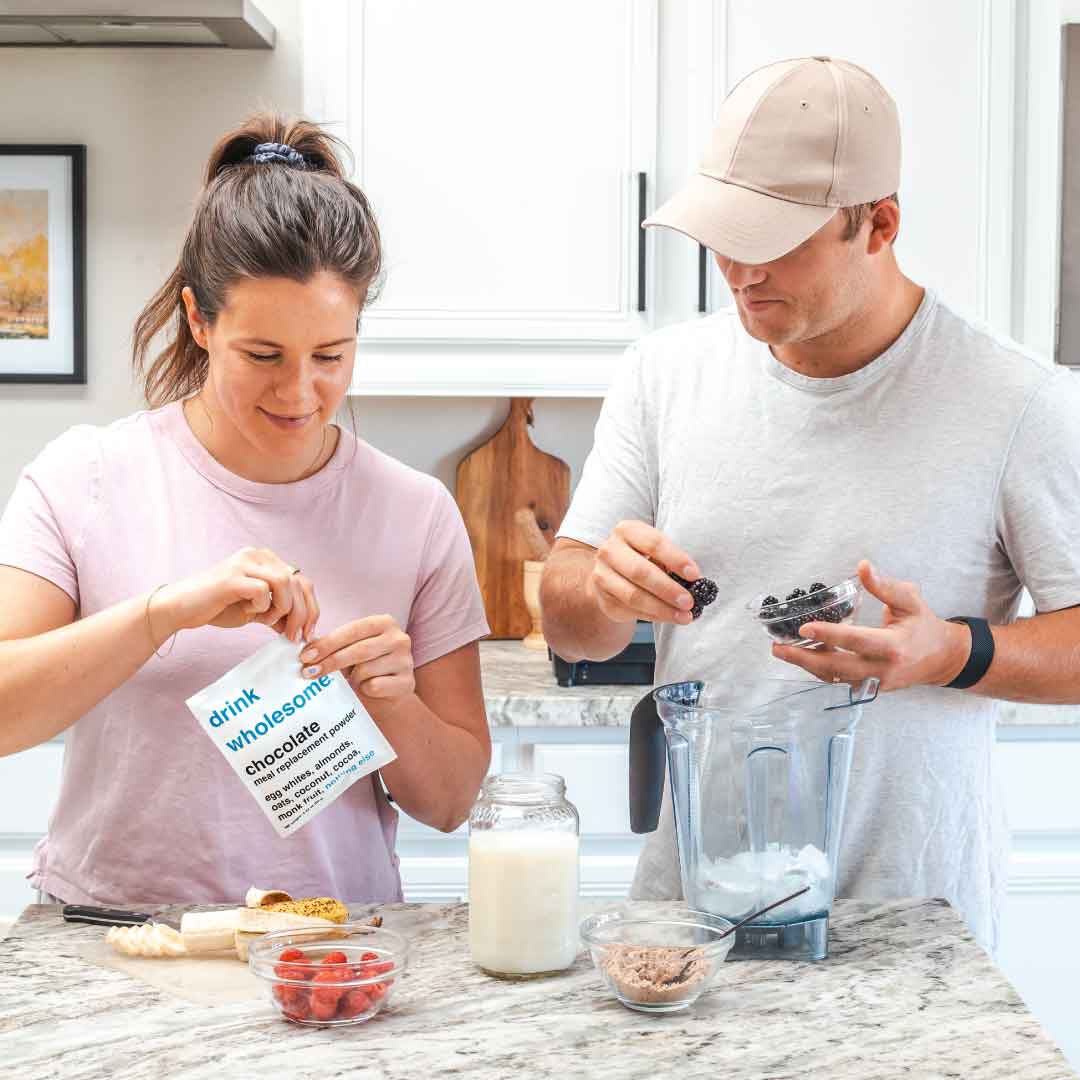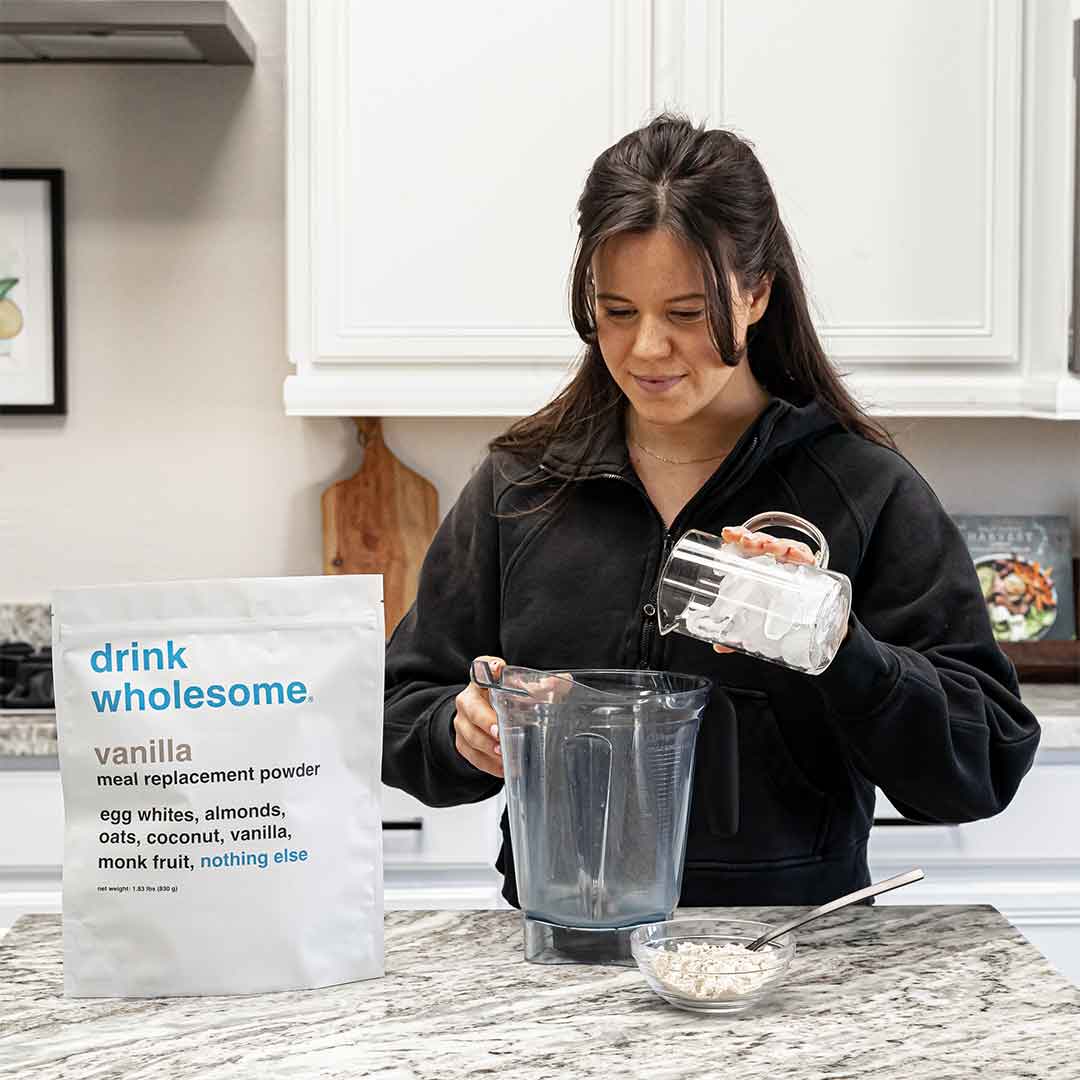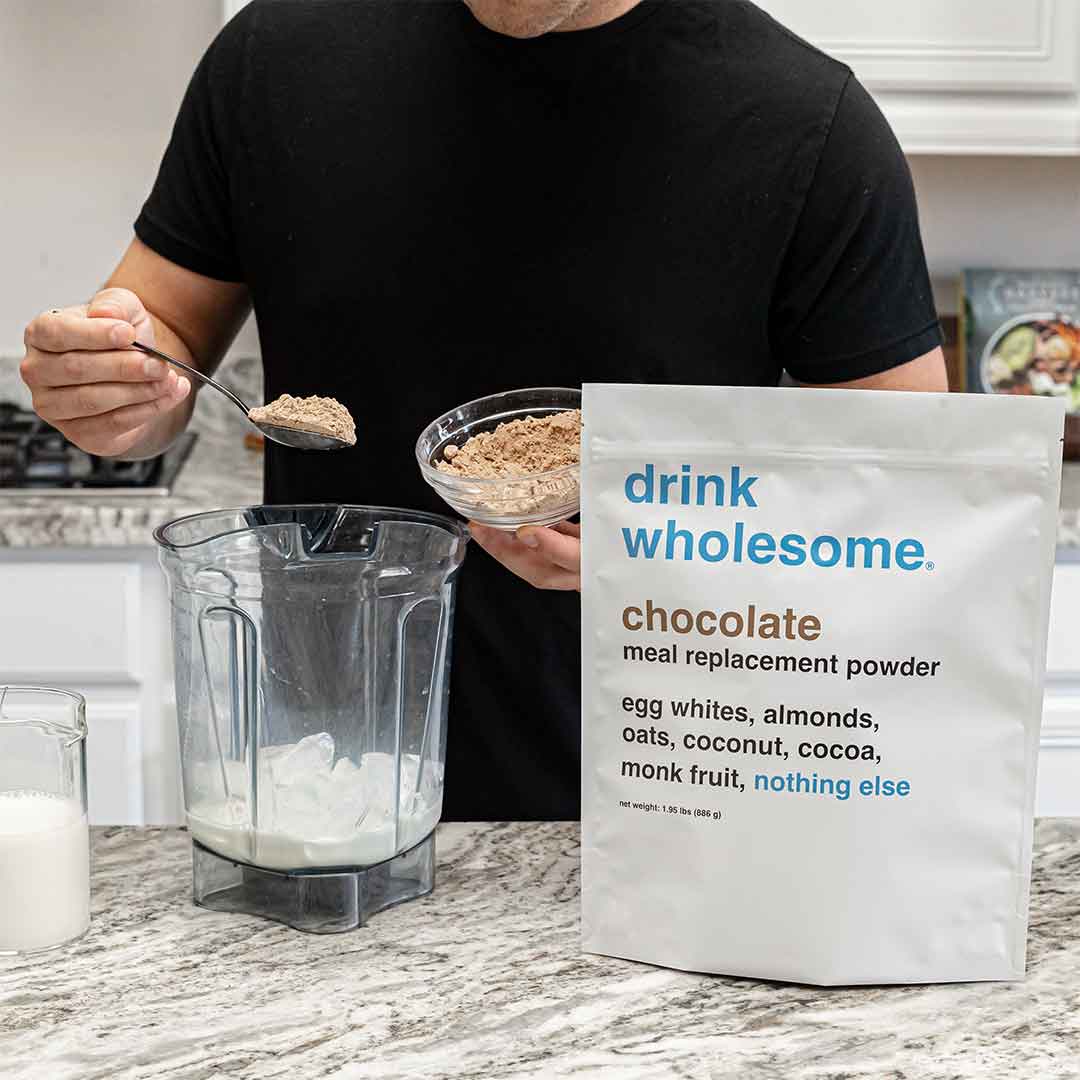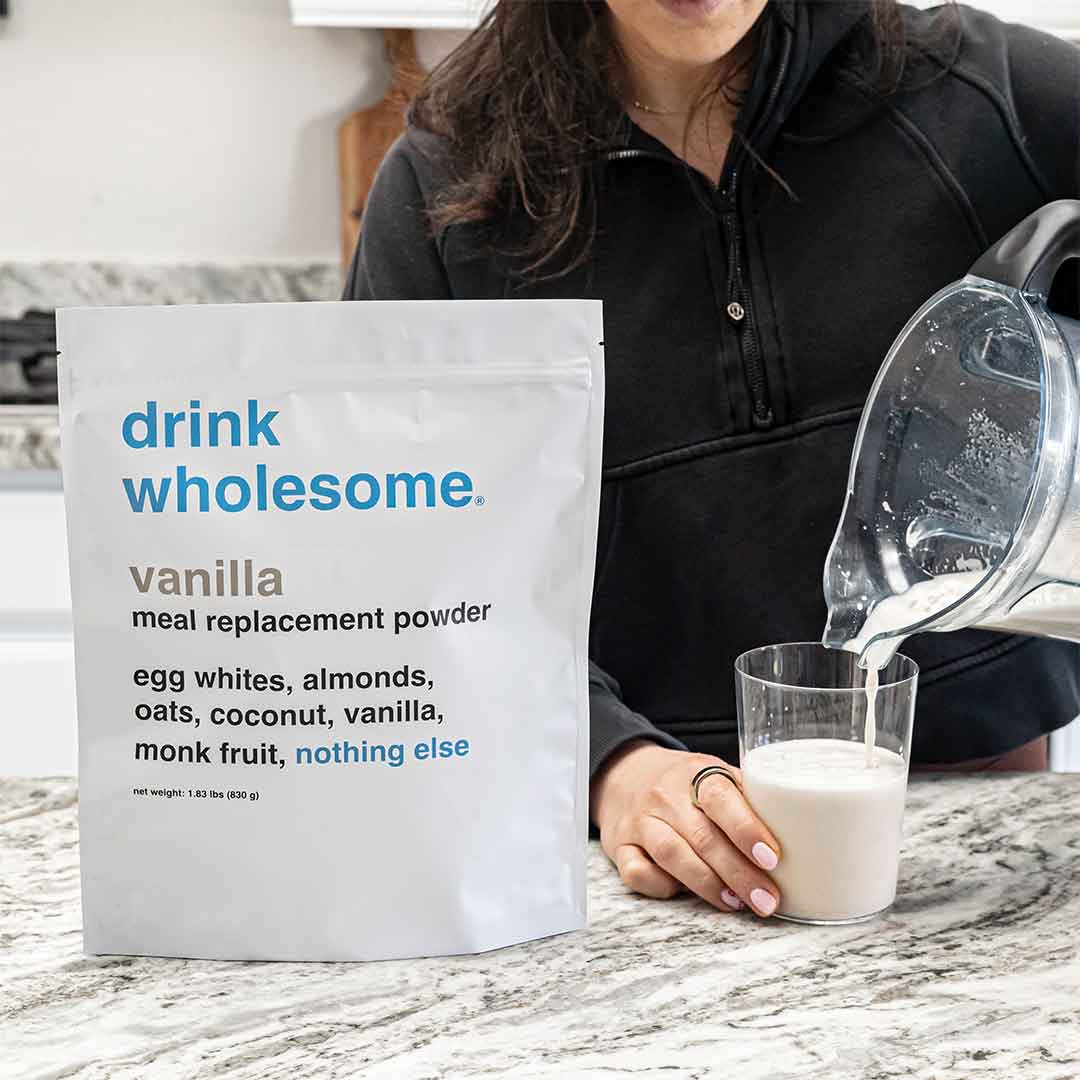What are the best PCOS-friendly meal replacement shakes?
Not all meal replacement shakes and powders are cut from the same cloth. Many meal replacements are full of added ingredients like emulsifiers, thickeners, artificial sweeteners, and flavors. These ingredients cause gastrointestinal (GI) issues and lead to long-term gut problems, which is particularly concerning for individuals dealing with PCOS.
First and foremost, women with PCOS frequently report symptoms akin to those experienced by individuals with irritable bowel syndrome (IBS). These symptoms may include bloating, constipation, diarrhea, and stomach pain. Unfortunately, many of the additives commonly found in meal replacements can either trigger or exacerbate these symptoms. The prevalence of IBS is also higher among women with PCOS than in the general population because conditions share a common root cause: gut dysbiosis.
Gut dysbiosis is an imbalance in gut bacteria, characterized by an excess of harmful bacteria, an insufficient quantity of beneficial bacteria, or a lack of bacterial diversity. Numerous studies have suggested that gut dysbiosis plays a role in the development of PCOS. This is because the microorganisms living in your gut, known as gut microbiota, may influence insulin synthesis, secretion, and androgen metabolism. Consequently, women with PCOS should pay careful attention to their dietary choices and steer clear of meal replacements with unnecessary additives.
One of the reasons why we make the best meal replacement for PCOS is that we do not use food additives. Even in small amounts, additives have the potential to trigger a range of uncomfortable gastrointestinal (GI) symptoms, including bloating, constipation, diarrhea, flatulence, and stomach pain. These symptoms arise because additives bear no resemblance to real food, making them challenging for your digestive system to process.
When incompletely digested food lingers in your gut, it can lead to one of two outcomes: either your intestines absorb excess water, resulting in diarrhea, or the additives become a feast for your hungry gut bacteria, leading to the production of excess gas. Excess gas can result in bloating, flatulence, and stomach pain, and can even slow the movement of food through the colon, causing constipation.
Here is a list of the most common food additives in meal replacement powder:
acacia gum, acesulfame potassium, artificial flavors, aspartame, carrageenan, cellulose gum, dextrin, dextrose, erythritol, gellan gum, guar gum, gum arabic, inulin, locust bean gum, “natural” flavors, maltodextrin, rice syrup solids, soy lecithin, silica, sucralose, sunflower lecithin, xanthan gum, xylitol
The real reason to steer clear of food additives, however, lies in their potential long-term consequences. Regularly eating food additives can disrupt the regulatory pathways within the intestines, playing a role in the development of conditions like inflammatory bowel disease (IBD) and other systemic inflammatory disorders.
Furthermore, ongoing research indicates that food additives, especially artificial sweeteners, may disturb the delicate balance of your gut microbiome. When the gut microbiome is thrown off balance, it not only impairs your ability to digest food and absorb nutrients efficiently, but it can also exacerbate PCOS symptoms (more on this later).


